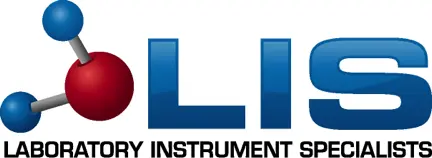Keep it Going: A Guide to Buying Used Equipment
It’s no secret that technology has made a quantum leap over the last few decades, and it has never been more apparent than in laboratories and testing facilities. Brandishing modern, lightning-fast hardware and software, there’s no debating that new equipment can reduce the time it takes to get the job done. But if you’re a small business, startup, or an individual on a budget, the initial price tag alone can send you packing, and that’s not including essentials such as installation, calibration, and the eventual maintenance. Luckily, there are plenty of great affordable used instruments out there looking for a new home, and with just enough research, you could save yourself thousands of dollars and a whole lot of time. In this guide, we’ll tell you what to look for and the questions you should be asking when looking at older instruments.
Conditions: The In’s & Out’s
Used, reconditioned, refurbished, demo unit, the list of terms to describe an old lab instrument can get quite long. Though sellers may use any of these terms to describe the same thing, it’s important to know the distinction between them. Let’s start at the beginning with used. A used instrument can be sold by anyone at any time, and there are no real set terms to determine the condition. Used covers everything from an instrument that’s seen normal use to one that might have missing or defective parts. It’s imperative to ask the seller as many questions as you can about the current condition. Is it working? How often was it being used? Why is it being sold? Depending on the answers, you could save big on an instrument that only needs a few new parts. But beware, sometimes the seller may not know what’s wrong with the instrument. Always factor in the cost and scarcity of the parts you need before making an offer on the instrument.
If you’re looking for something that’s still used but has had all of the necessary work done, then reconditioned is the way to go. Reconditioned typically means that a specialty company or technician has bought or serviced the instrument and replaced all of the broken or deteriorating parts. This also usually means the instrument has been cleaned and calibrated to factory standards, but it’s still best to ask. A reconditioned instrument can be a bit more expensive than a used one, but you’ll save time and the hassle of having to work on it later.
Demo Units have a special place in all of this, because they may be new, used, or reconditioned. The most typical definition is an instrument that’s out of the box and was used for promotional or demo purposes. Most demo units have seen little use, and will typically sell for only slightly less than what it originally cost when the instrument was new. If you’re in the market for a newer instrument but can’t afford to splurge, this is the holy grail. Not only should you get a decent deal on a hardly used instrument, but it should be in near perfect condition.
Buying a Reconditioned Instrument From LIS
At Laboratory Instruments Specialists, we ensure that every pre-owned instrument that we sell has been completely restored to factory standards. That entails changing all of the necessary parts, ensuring that every feature is working exactly like it did when it was new, and cleaning the instrument both inside and out. In addition to getting a completely reconditioned instrument, we also include free installation, a 14-day trial period, and a warranty on replaced parts of the instrument. Additionally, we take care to stock all the parts for every reconditioned instrument that we sell, so if you need future repairs, you can find them with us.
Whether you’re currently in the market for a used instrument or considering buying one in the future, you can always check out our full catalog online at https://lissci.com/ or call us toll-free at (877) 409-9934.


